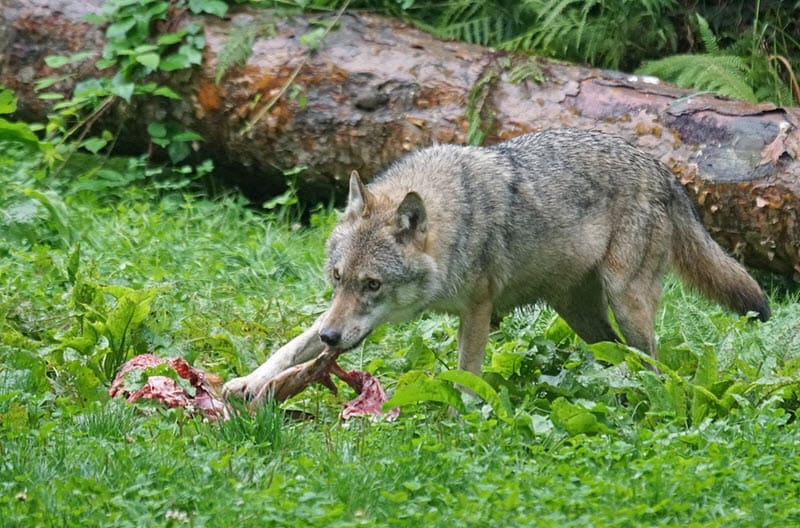Goat predator control is essential if one wants to raise meat goats in pretty much anywhere in the world. The most common predators in our area are coyotes and domestic dogs. Coy-dogs, wild dogs, bobcats, cougars, and black bears can also be a problem, but only rarely. Black-necked buzzards and bald eagles will kill newborn kids, but we have never had a problem with them. Bald Eagles winter in our area but they usually leave before our goats start kidding in spring.
It is best to use two approaches to predator control, goat fencing, and guardian animals.
Lamas, donkeys, and guardian dogs are used for predator control. We have used all three and they all worked well for us. Donkeys and lamas eat pasture. Thus they are cheaper to feed than dogs. Guardian dogs are very large and expensive to feed. Donkeys prefer grass to sprouts. They are reluctant to follow goats into brushy areas to eat sprouts. Lamas like to eat brush, just like goats.
When using lamas or donkeys do not use more than one of each for each herd of goats, otherwise, they will bond with each other and not with the goats. Male lamas need to be castrated at about 10 months of age. If they are castrated at a younger age, they will get arthritis and die from it. If they are not castrated they will kill does by trying to breed them. They will do this even if the does are not in heat. Female lamas do not come in heat until after they are bred.
Dogs That Protect Goats
Unlike donkeys and lamas, guardian dogs work best in teams. This is especially true for large herds of goats (over 40 head.) Large herds tend to split up into smaller groups when grazing.
A team of dogs will split up and make sure each group is protected. The alpha female will supervise the others and assign tasks. They will position themselves on opposite sides of the herd. One will stay with the babies when the mothers are grazing. They will take turns sleeping.
If you think your guardian dogs are lazy and always sleeping that is because they have to sleep sometimes and they do their work at night when the goats are most vulnerable to predators. They also need to bark at night. Get used to it. When you hear your dogs barking at night, you can sleep in peace knowing your goats are protected.
Guardian dogs are especially alert during kidding season. One dog will stay with the next doe that is going to freshen. I don’t know how they can tell, but they can. Often when a doe has triplets the mother will neglect the last kid to be born. When this happens the dog will step in and clean up the kid and make sure it gets up to nurse.
There are many breeds of guardian dogs. The Great Pyrenees is the most common. The Anatolian Shepherd is the next most common, and then comes the Commodore. There are no overall differences in guarding ability between the Pyrenees and Anatolian breeds, but there are great differences between individual dogs within these breeds.
We prefer the Anatolian Shepherds because we like the short hair and the color. Both the Pyrenees and the Anatolian Shepherds are very people friendly, and we like this trait.
If you need a dog that will protect your goats from people we recommend the Commodore. Many Commodores need to be locked up out of sight and hearing while their owners are vaccinating, worming, or trimming hooves. We know very little about the other breeds of guardian dogs because they are rare, and we have not had contact with goat producers who have used them.
We allow ours to take their kids out with the herd when the kids are about a week old. At this age, the kids can travel fast enough to keep up with the herd if something is chasing them. All of the kids will usually stay together in one place while the does are grazing. One or two does and a guardian dog will usually stay with the kids while the others graze.
Llamas make good guard animals. They eat the same forages as goats.



Leave a Reply